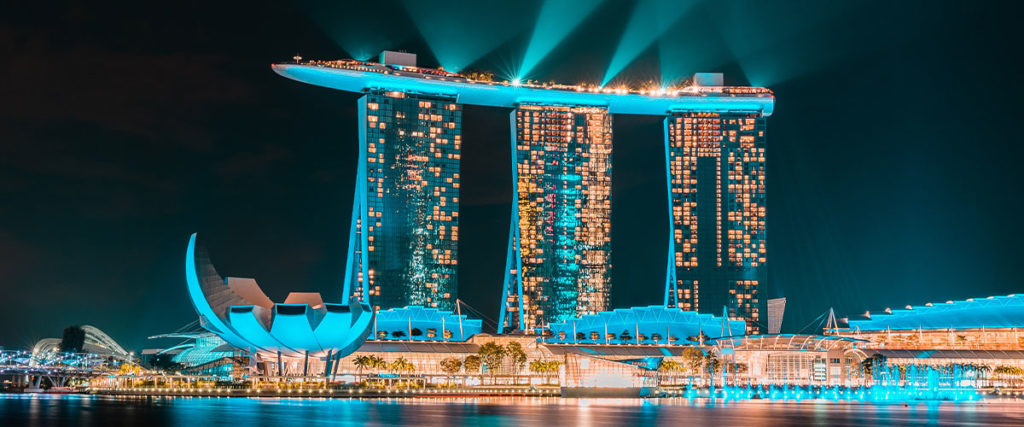Singapore’s largest telecommunication operators have chosen Nokia and Ericsson to supply the city’s 5G network, beating out Chinese competitive giant, Huawei Technologies. Ericsson will own core and mmWave networks, while Nokia will take control of the radio access network.
The announcement marks a significant move forward since the joint venture began in January when mobile operators StarHub and M1 agreed to submit an exclusive bid for a 5G license across the city. Singapore’s Minister for Communications and Information, Mr S Iswaran, has stated that the commencement of 5G deployment aims to “achieve substantial coverage in the next two years, and nationwide standalone coverage by 2025“.
The implementation of 5G networks is largely expected to support local businesses and consumers through “greater choice, more competitive prices and service innovation“, as well as advance the city’s infrastructure. With high network speeds, enhanced resilience, and low latency, 5G’s hyperconnection could be the key to unlocking Singapore’s future digital economy, insulating its flagging economy against the effects of the COVID-19 pandemic, and cementing Singapore’s position as the world’s second most digitally competitive country.
The symbolic move to shun Huawei comes in the wake of the American government’s repeated insistence that Huawei is controlled by the Chinese military – claims that the Chinese telecom giant has denied. In the midst of the US-China trade war, Huawei, the world’s second-largest smartphone manufacturer, has become a focal point for simmering international tensions over allegations of intellectual property theft and national surveillance.
Singapore’s decision to delegate its 5G network to Finnish-based Nokia and Swedish-headquartered Ericsson may make the city more attractive to international tech giants looking to expand into Asia Pacific. Although neighbouring financial hub Hong Kong has also renewed its push to advance its 5G offering, having launched commercial 5G services in April, Google has indicated it is considering alternative locations for its proposed 8,000-mile Trans-Pacific Internet cable that would link Los Angeles to Hong Kong, citing Singapore as an attractive secondary location.
Hong Kong has come under growing scrutiny over the past year with international firms raising concerns about potential data censorship and security, given Beijing’s growing influence over Hong Kong. The impending national security law, which could be implemented as early as July, has also further undermined international trust in Hong Kong’s capacity to ensure its free flow of information. The move comes after months of civil and political turmoil, which have seen a crackdown on free speech from the Chinese government.
On a global scale, research conducted by IHS Markit estimates the 5G industry will be worth a staggering USD 13.2 trillion by 2035, generating 22.3 million jobs. With the stakes higher than ever, the deployment of 5G technologies around the world is well placed to foster a more rapid revival of global economies damaged by the pandemic and develop a more futuristic, smarter, and more efficient community.
Related Articles
3 Things to Know About the Future of 5G in 2020
Singapore Will Allow Retail Businesses to Reopen in Phase 2 from 19 June
COVID-19: Diminished Demand Poses Greatest Challenge for Businesses





